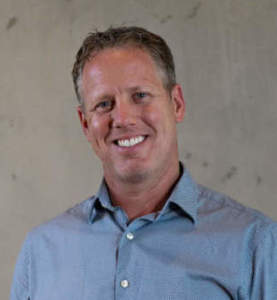Washington State Energy Code Updates: Challenges for Builders
Posted February 27, 2021 in Real Estate Trends

Every couple of years, we normally have a statewide building code cycle update where the building code is either updated to stricter codes or provides more clarification to current codes. Just before COVID-19, builders were anticipating the 2018 code cycle to go into effect, specifically how it relates to new energy codes, but then it was postponed. Now, as of February 1, 2021 the new code has gone into effect and all new residential building permits submitted on or after that date must reflect the new Washington State Energy Code requirements.
The new energy code provides builders pathways to reach the required energy code credits. Essentially, builders who build only to code have to get six credits to achieve energy efficient building practices. Working to achieve those credits can affect the design of the structure, the HVAC systems that are installed, the water heating systems and all the appliances in the house. They can also impact the exterior shell of the home as it relates to air leakage and HVAC duct leakage.
The use of electric heating and air conditioning, and the use of electric water heaters – heat pump water heaters specifically – is going to become a lot more prevalent. You can get energy credits for using electrically powered hot water heaters, with the goal that all homes will potentially be electric in the future, which is cleaner, renewable, and more energy efficient. There’s a solar component as well. You can add solar panels to get energy credits that are tied to the grid. And there are framing techniques to make room for additional insulation, which is another big component.
At Urban NW Homes, there are a few changes we’ll need to make to meet standards, which is not a surprise to us. But since our homes have been built and third party verified to the National Green Building Standard (NGBS) from the beginning – an energy standard well above code – we are not impacted as much as builders that don’t. While other companies are scrambling during each new code cycle to meet the higher standards, we are in the position to educate others and move forward a bit more smoothly.
There’s certainly a cost to build to higher standards if you’re a code level builder. Builders who only build to code are just hitting the bare minimum state requirements. So at every new code cycle they must examine their building practices and make the changes. When they don’t have the training and trade partner connections already in place, it can cost up to $15k-$20k more per home to build to this more efficient standard. At Urban we avoid most of this extra cost because we’ve invested in the education and training needed to meet higher standards early on. We’ve also worked with our trade partners so long we get price breaks. The code is strict and in order to get credits for it, we’ve found it’s easier to swap out equipment rather than to test and seal up all leaks inside of a home. Luckily, we’ve always installed higher performing furnaces and HVAC systems, so people who have bought our homes have already enjoyed lower power bills for a long time. That means a good return on investment for living in the home as well as the resale of the home, which can often appraise higher being NGBS third party certified.
As the chair of our Clark County Green Building Council, I’ve been educating, training and informing members of the council, as well as the Building Industry Association of Clark County, about how to best prepare for these upcoming code updates for awhile now. And with a seat on a consensus committee that assists in writing and adopting new NGBS code that coordinates with state code cycles, we are always prepared for what’s next in home energy innovation.
At Urban we’re always exploring new ways to improve, such as with solar ready homes or homes that are Net Zero Energy ready (which is also a certification). Instead of working to meet each new code standard as it arrives, we keep building above and beyond the current code revision and stay one step ahead of the code cycles that occur every few years so we can continue to build the highest quality product we can.
For more detailed information about the new energy code standard, check out the WSU Energy Program website: www.energy.wsu.edu.
Jerud Martin
Director of Construction/Owner
Urban NW Homes • urbannw.com • 360-823-5480